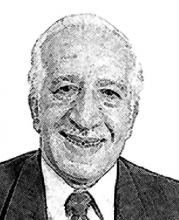You are here
Decision that will influence political life
Jun 18,2016 - Last updated at Jun 18,2016
The Muslim Brotherhood in Jordan last week took a major decision that will reflect on future development of political life in the Kingdom.
Internal elections of the political bureau resulted in a new supervisor, Abdel Hamid Thuneibat, from Karak, a moderate former member of parliament, who replaced Hamam Said, from Jerusalem, considered a hardliner, and a strong opponent of many successive governments.
The new, moderate, leadership convinced 76 per cent of the members of their political party, the Islamic Action Front, to vote in support for running for parliamentary elections, due on September 20 this year.
Boycotting parliamentary elections was one of the important mistakes that the old leadership had committed, depriving the democratic process in Jordan of the vitality of having the largest political party involved in the reform process.
Since the signing of the Jordanian-Israeli peace treaty in October 1994, the Muslim Brotherhood in Jordan joined other opposition parties and disengaged from its traditional role as a strong ally of King Hussein, for whom it used to fight against several attempted coups d’état in the early 1960s. During the troubles of September 1970, the Muslim Brotherhood stood against all temptations to join George Habash and the Popular Front for the Liberation of Palestine against the army.
But the crowning moment was in 1991, when six of the movement leaders joined the Cabinet of prime minister Mudar Badran and became the dominant bloc in the 12th parliament, controlling 32 out of an 80-seat parliament.
Recently, age started to take a toll on the 70-year-old movement. That was manifest in the dissent between the younger and the older generations.
Splinter groups emerged, influenced by the Arab Spring, demanding more radical action against the regime.
A secret militant group decided to identify with the Palestinian Hamas, which triggered an immediate reaction from East Bank members of the Brotherhood.
Currently, Zamzam is the most active of the five splinter groups, led by Erhayyel Gharaybeh, a university professor who is about to obtain a licence for a new political party.
The “Elders of the Brotherhood” is the term given to the former leaders, Abdel Latif Arabiyyat, Salem Falahat and Hamza Mansour, who are about to form a new Islamic party out of their large splinter group.
The political value of the Muslim Brotherhood in Jordan is in the fact that they are the only ones who could defeat Daesh ideologically among the younger generations.
Neither radical Daesh nor Al Qaeda could recruit followers in refugee camps or villages where Muslim Brotherhood members are present.












